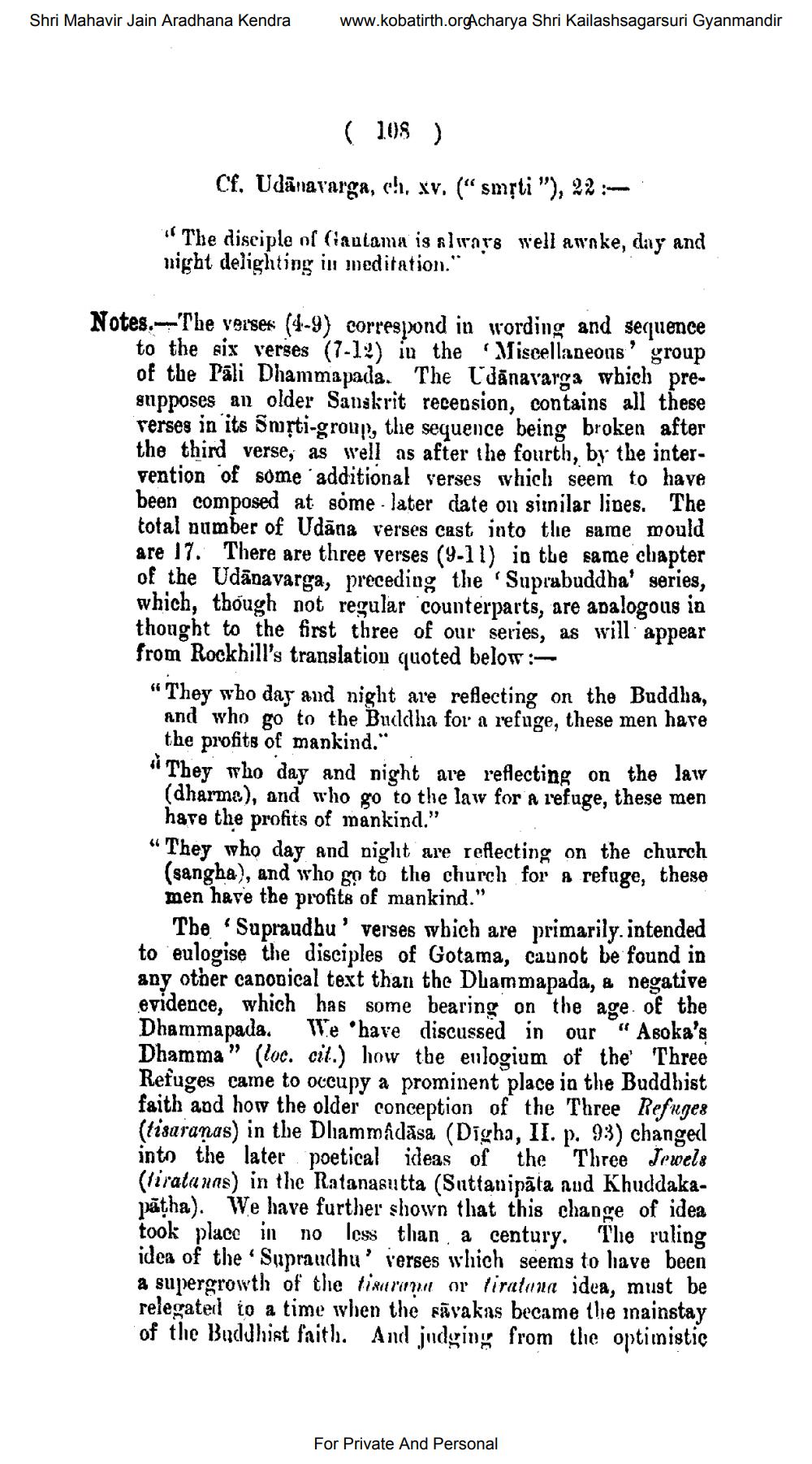________________
Shri Mahavir Jain Aradhana Kendra
www.kobatirth.orgAcharya Shri Kailashsagarsuri Gyanmandir
( 108 ) Cf. Udānavarga, e!ı, xv. ("smộti "), 22 :
* The disciple of (iautama is alırars well awake, day and night delighting in meditation."
Notes.--The versek (4-9) correspond in wording and sequence
to the six verses (7-12) in the Miscellaneons' group of the Pāli Dhammapada. The Cdānavarga which presnpposes an older Sanskrit recension, contains all these rerses in its Sušti-group, the sequence being broken after the third verse, as well as after the fourth, by the intervention of some additional verses which seem to have been composed at some later date on siinilar lipes. The total number of Udāna verses cast into the same mould are 17. There are three verses (9-11) in the same chapter of the Udāpavarga, preceding the Suprabuddha' series, which, though not regular counterparts, are analogous in thought to the first three of our series, as will appear from Rockhill's translation quoted below:"They who day and night are reflecting on the Buddha, and who go to the Buddha for a refuge, these men have
the profits of mankind.“ " They tho day and night are reflecting on the law
(dharma), and who go to the law for a refuge, these men have the profits of mankind." “They who day and night are reflecting on the church
(sangha), and who go to the church for a refuge, these men have the profits of mankind."
The Supraudhu' verses wbich are primarily. intended to eulogise the disciples of Gotama, cannot be found in any other canonical text than the Dhammapada, & negative evidence, which has some bearing on the age of the Dhammapada. We have discussed in our "Aboka's Dhamma" (loc. cit.) how the enlogium of the Three Refuges came to occupy a prominent place in the Buddhist faith and how the older conception of the Three Refuge: (tisaranas) in the Dhiammadāsa (Digha, II. p. 93) changed into the later poetical ideas of the Three Jewels (tiratuuns) in the Ratanasutta (Suttanināta aud Khuddakapātha). We have further shown that this change of idea took place in no less than a century. The ruling idea of the Supraudhu' verses which seems to have been a supergrowth of the timurinn or tiratana idea, must be relegated to a time when the sāvakas became the inainstay of the Buddhist faith. And judging from the optionistic
For Private And Personal




